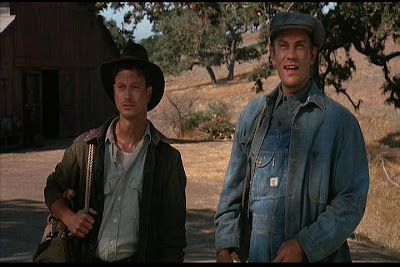 Director:
Director:Doug McKeon
Watching the second hand advance sixty times just before the final bell releases kids for summer vacation is arguably the longest and most painful minute in a child’s life. While typically that fateful three o’clock bell seems to announce an idyllic summer of freedom away from the rigors of flashcards and chalk dust, twelve year old New Yorker Annie Lamm (Jordan-Claire Green) finds her plans for partying dashed when her parents, long overdue for some quality alone time, impulsively decide to pack up their daughter and head off to South Carolina. Depositing Annie with her maternal grandfather Donald (Paul Dooley), her parents Carol (Lea Thompson) and Gary (Thomas Gibson) rent a place nearby promising to check in regularly via her mother’s trusty cell phone.
However, the independent and headstrong Annie starts devising her own plans for escape when she realizes that instead of soaking up rays in the family beach house, she’s staying in a musty, dusty, clutter filled rundown home without a computer and just a black and white television that can only tune to the Spanish channel for her amusement. And it's also a place where Annie notes to her chagrin that each room offers its own odor ranging from “taxi cab” to “old tire.”
While it’s hardly the picture perfect postcard Hilton Head, South Carolina resort town Annie was hoping for, her grandfather and his best friend Barney (a comical Martin Mull) try their best to entertain the girl with chess and stories of the good old days. Predictably, Annie makes a run for it and after her optimistic journey back to New York places her in peril, she begins to change her attitude when she encounters some new quirky, eccentrics and more importantly realizes there’s more to her grandfather than meets the eye.
A refreshingly old-fashioned family film that, despite its startling similarities to On Golden Pond (which incidentally starred director McKeon), is the type of film that manages to engage viewers of all ages and tragically may be overlooked by audiences due to its lack of a wide theatrical release. Admirably building a plot around a young woman’s bonding with her grandfather as opposed to a typically male formula of a young man beginning to fill his masculine ancestor’s shoes, Come Away Home was an audience favorite that earned a Best Picture Honor from the International Family Film Festival along with an Award of Excellence from the Film Advisory Board. An official selection from the traveling nonprofit organization Kids First, McKeon’s touching movie has recently been released on DVD.

































